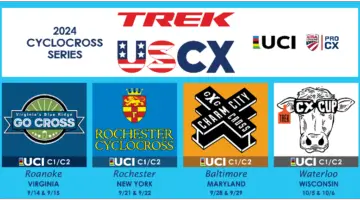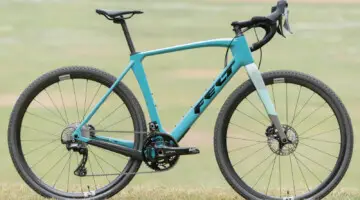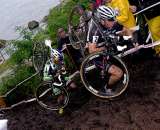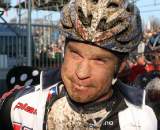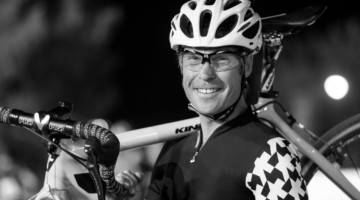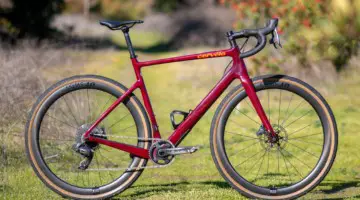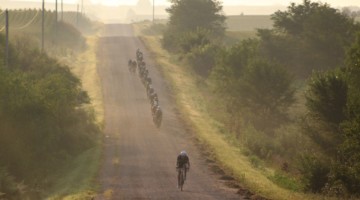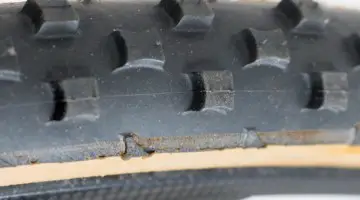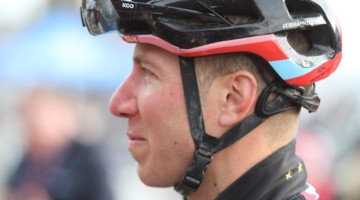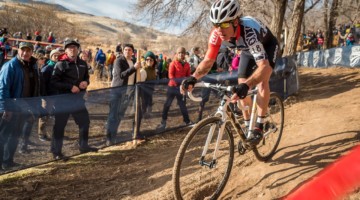by Dan Seaton
Jonathan Page, coming off two bumpy seasons, full of ups and downs, is headed into the 2010-11 cyclocross season looking as relaxed and confident as he has been in years. This year Page has lent his expertise and name to a line of ’cross bikes produced by sponsor Blue, is working with a coach for the first time in his career, and showed excellent form during a month of racing in the US this summer, including a podium finish at the Exeter Criterium in his home state of New Hampshire.
For Page, all things seem to be converging on St. Wendel, the small town in southwest Germany that will host the 2011 Cyclocross World Championships and may host the birth of his third child as well. Cyclocross Magazine caught up with the Belgium-based rider, who talked about Trans-Atlantic travel, parenthood, and his prospects in a full season of racing in Europe.
Cyclocross Magazine: Before we get to ’cross, let’s talk a little about how things are going right now. You had some very good results in New England earlier this summer. Are you happy with your form right now?
Jonathan Page: Yes. I’m in good condition. I felt like I raced pretty well for a lone rider in the peloton in New England this summer. I was solid, and that’s just fine.
CXM: How about your training coming into the season? How’s that going? Are you doing anything differently than before?
JP: My training has been going very well. I’m very happy with my trainer. It’s the first time I’ve had the opportunity to train specifically, with a program made just for me, for a whole year. That’s what it’s been now: one whole year. So I am very optimistic.
CXM: Can you tell us a little about who you’re working with and how he’s changed your program this year?
JP: I’m working with Todd Herriott of Herriott Sports Performance. He’s been a friend of mine for a long time, since my days on the Colavita road team. He has basically forced me to see the value in working with technology. Before Todd, “tech” to me was wearing a heart rate monitor – sometimes. Todd is very hands on: very attentive, very personal – but not too pushy in a way that makes me push back. He’s one of only three people in all of my years of cycling who could properly coach me.
CXM: Are you going to do any racing in the US this ’cross season?
JP: I will only be racing at Seattle’s StarCrossed weekend, Vegas and the Madison USGP weekend. After that, I’m going to stay put in Europe as I’ve been lucky enough to receive series contracts for the Super Prestige, GVA and now the Fidea Series. I’ll also be doing all the World Cups. It’s a great opportunity to see what I can do without all the travel of years past.
CXM: That means you’re going to skip Nationals? How come?
JP: Basically, it’s like this: I won Nationals, at one point, three years in a row. It did nothing – financially or otherwise – for me, other than that I had a cool-looking jersey and bragging rights.
In those three years, I didn’t have to sacrifice as much to go to Nationals because I did not yet have a real career in Europe. I wasn’t making a lot, if any, start money, and I certainly wasn’t offered series contracts yet. So I was able to come over a few weeks in advance of the Nationals and give it a real go.
In 2005, going for my fourth Nationals in a row, I contracted some kind of poisoning and had to spend the night before Nationals in the hospital. I did my best, but only managed second. On top of that, I got even sicker, couldn’t fly back in the days after Nationals, and lost my GVA series contracts for the next years. That sucked. That was the start of real sacrifice for me to get to Nationals.
CXM: So the travel is a problem, but I guess it also means you have to pass up the European races that happen before and after Nationals because of the differences between ’cross calendars on the two continents.
JP: Yes. Each year after [2005], I’ve given up series contracts, given up individual race start money over here and then paid lots of money to get to Nationals where, if I won, I really wouldn’t gain anything from it, but when I lost, I felt like I had lost out on all the things I had given up to be there.
I know my own body, and I don’t handle the travel well, so I need time. I want to give myself a real shot over here [in Europe]. I have contracts in every major series this year, and that’s something that has taken me years of hard work to get. I can’t afford – financially or career-wise – to give that up for a shot at being National Champion, which, historically, hasn’t helped me a whole lot in my career. I’d have better use of making a podium or two in the Christmas series or the World Cups immediately following Nationals.
CXM: We heard that your wife, Cori, is going to have a baby at the end of January, around the same time as Worlds. How is this going to affect your racing and training plans?
JP: Well, other than making sure I have a phone with me at all times starting in January, it won’t affect my training. It won’t affect my racing either. We’ve already been to St. Wendel to look at the hospital where the baby could possibly be born during the Worlds period. Although it’s taken a bit of extra planning, it makes me more focused and excited!
I’m already psyched for January. I’m lucky that I have a flexible wife, not worried about delivering our baby in a foreign land. Otherwise, it would affect my racing I’m sure because – although some think I’m crazy – my wife and kids and new baby come before any and every race, including Worlds. But now, I will have the best of both worlds!
CXM: You are definitely a little unusual among European racers for the way you set your priorities: family before everything else. But we’ve heard that some of the other racers here in Europe have followed your lead, bringing their families to the races more often and maybe taking a more active role with their kids than they might have in the past. Do you think there’s there any truth to that?
JP: I definitely have seen in the last year or two more than just Cori and our kids at the races, sometimes even at the start and finish line. Before a year or two ago, I don’t remember that ever happening. So, maybe?
CXM: I can imagine some people might argue that the sacrifices you have to make for your family could hurt your racing career. What would you say to that?
JP: I’ve got my priorities, they’ve got theirs. There will always be people who don’t like my ways. But I could never be truly happy if I put my career, racing, money before my family.
I’ve learned not to let [the critics] bother me. Instead, they fuel me. I concentrate on all the great support I have. There are really good people out there in this sport. I don’t let the couple of rotten apples spoil my pie.
CXM: Let’s talk a little more about racing. Can you tell us some of your big goals this season? Any races you are particularly looking forward to or hoping to do well in?
JP: I’d like to start the season well in the USA, free from bad luck. Since I’m lucky enough to have gotten series contracts for all the major races over here, I’d like to focus on those and try to do well, very well, in the ones that I feel I have the best chance in and then hope that with a couple of great results in each, the overall in each of those series will end up with a high placing for me. I’d like to be invited back to these series next season. Then, of course, I’ll focus on World Cups and the biggest goal will, of course, be Worlds.
CXM: You had some of your best results of last season just before and just after Worlds, but you had terrible luck in Tabor even though you clearly had great form there. What is it going to take to bring everything – good form and good luck – together this year? Are you doing anything special to try to make that happen?
JP: I did have terrible luck last year in Tabor, but I also let the luck crack me, plain and simple. I can’t do that again. I could have recovered to at least a decent result, even with all the bad luck but, instead, I cracked.
This year I have a plan and a secret weapon. I have to make it happen. I haven’t stopped thinking about Worlds in Tabor yet, and I won’t forget it.










